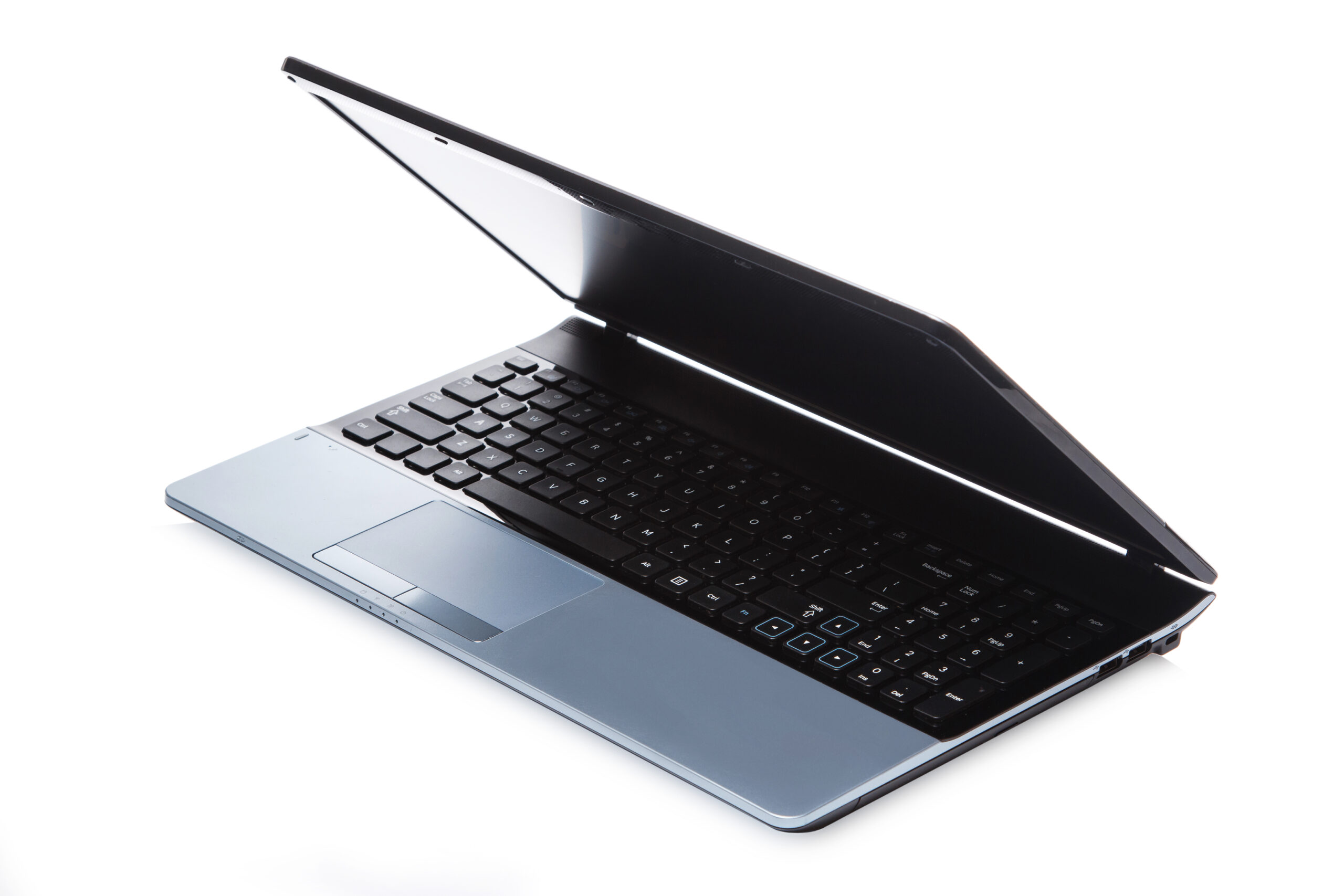Toshiba Corporation, once a titan in the technology sector, is undergoing a critical transformation as it navigates the challenges of an evolving industry landscape. With a rich legacy spanning over 140 years, Toshiba has been synonymous with innovation and technological advancement. However, as the tech sector faces unprecedented shifts due to digitalization, market pressures, and changing consumer preferences, the company is compelled to reassess its strategic direction. This article explores Toshiba’s transformation, the challenges it faces, and its future outlook in today’s competitive tech market.
Toshiba’s Transformation: Embracing Change in Tech Landscape
Toshiba’s current transformation is rooted in the recognition that the tech industry is not static; it evolves continually, driven by rapid advancements and fierce competition. The company’s leadership has come to understand that simply relying on past successes is insufficient for future growth. As the market shifts towards cloud computing, artificial intelligence, and the Internet of Things (IoT), Toshiba has initiated a comprehensive review of its business model. This includes reevaluating its core competencies and identifying new areas for growth that align with emerging trends in technology.
Embracing change means adopting a more agile approach to innovation and product development. Toshiba is actively fostering a corporate culture that encourages creativity and adaptability among its employees. This cultural shift is essential for the company to respond effectively to market demands and anticipate future trends. By promoting cross-functional collaboration, Toshiba aims to break down silos that have historically hindered its ability to innovate swiftly.
Moreover, Toshiba is investing in employee training programs to equip its workforce with the skills necessary for the digital age. Recognizing that human resources are its most valuable asset, the company is committed to nurturing talent that can drive its strategic objectives. This focus on workforce development not only enhances employee morale but is also critical for sustaining long-term competitiveness in the tech landscape.
Toshiba’s transformation is also marked by a shift towards strategic decision-making that prioritizes sustainability and social responsibility. The modern consumer is increasingly drawn to companies that demonstrate a commitment to ethical practices and environmental stewardship. By integrating these values into its core strategy, Toshiba is positioning itself as a forward-thinking enterprise that resonates with contemporary consumer expectations.
In addition, the company has recognized the importance of digital transformation in enhancing operational efficiency and improving customer experiences. By leveraging data analytics and digital tools, Toshiba aims to optimize its supply chain and streamline processes, ultimately reducing costs and improving service delivery. This proactive approach to transformation highlights the company’s commitment to remaining relevant and competitive in the fast-paced tech industry.
Finally, Toshiba’s transformation is not merely a reaction to external pressures but a proactive strategy aimed at seizing opportunities in a volatile market. By aligning its business practices with the demands of the digital economy, Toshiba is laying a robust foundation for its future, ensuring that it remains a key player in the tech sector for years to come.
Historical Context: Toshiba’s Legacy in Technology Sector
Founded in 1875, Toshiba Corporation has a storied history that has shaped it into a significant player in the global technology landscape. Initially starting as a manufacturer of telegraph equipment, Toshiba quickly expanded into various sectors, including electrical machinery, consumer electronics, and semiconductor manufacturing. The company has been a pioneer in several technological innovations, including the development of the first Japanese-made television and the first laptop computer.
Throughout the decades, Toshiba has built a reputation for quality and reliability, becoming synonymous with groundbreaking technologies that have defined eras. Its contribution to the development of the semiconductor industry, in particular, has been noteworthy, with Toshiba playing a critical role in the advancement of flash memory storage. This legacy of innovation positioned the company as a trusted supplier for other tech giants and helped establish its foothold in the global market.
However, Toshiba’s history is not without its challenges. The company has faced several significant setbacks, including financial crises and governance scandals that have tarnished its reputation. The most notable incident occurred in 2015 when Toshiba was embroiled in an accounting scandal that led to a massive financial restatement and the resignation of top executives. This episode not only damaged investor confidence but also highlighted the need for a cultural shift within the organization.
In light of its historical challenges, Toshiba has sought to rebuild its brand and regain stakeholder trust. The company has implemented rigorous compliance measures and governance reforms to ensure transparency and accountability. These efforts are crucial for Toshiba as it seeks to move past its troubled history and focus on a sustainable future in the tech industry.
Despite the hurdles, Toshiba’s longstanding legacy of innovation remains a cornerstone of its identity. The company continues to invest in research and development, drawing on its rich heritage to inspire new technological breakthroughs. By maintaining a strong connection to its historical roots while embracing modern challenges, Toshiba is navigating a complex landscape with a renewed sense of purpose.
Ultimately, Toshiba’s historical context provides valuable lessons for its ongoing transformation. The company’s ability to adapt and innovate in response to change has been pivotal in its survival, and it is this resilience that will guide Toshiba as it charts a new course in the technology sector.
Current Challenges: Financial Struggles and Market Pressures
In recent years, Toshiba has grappled with significant financial struggles that have put immense pressure on its operations. The fallout from its accounting scandal led to a decline in stock prices and a loss of investor confidence. This tumultuous period forced the company to refocus its financial strategies, often leading to asset sales and restructuring efforts to stabilize its balance sheet.
One of the most pressing challenges facing Toshiba is the intense competition in the semiconductor market. As the demand for memory and storage solutions surges, particularly with the rise of artificial intelligence and big data, Toshiba’s rivals, including Samsung and Intel, have ramped up their efforts to capture market share. This competitive environment has compelled Toshiba to innovate rapidly while also managing cost structures to remain viable.
Additionally, the company has faced market pressures related to its traditional consumer electronics business, which has been adversely affected by the shift towards mobile technology and smart devices. As consumers increasingly prefer integrated solutions, Toshiba’s once-thriving product lines have struggled to keep pace with evolving preferences. This has necessitated a reevaluation of its product offerings and an emphasis on diversifying into high-growth areas.
Global supply chain disruptions, exacerbated by the COVID-19 pandemic, have further complicated Toshiba’s operational landscape. Shortages in semiconductor components and logistical challenges have impacted production capabilities and delayed product launches. Navigating these disruptions has become critical for Toshiba to maintain its market position and fulfill customer demands.
The company’s financial struggles are also linked to its heavy reliance on specific markets, particularly Asia. While this focus has historically brought success, it has also exposed Toshiba to regional economic fluctuations and trade tensions. As geopolitical dynamics continue to evolve, Toshiba must develop strategies to mitigate these risks and diversify its market presence.
Ultimately, Toshiba’s current challenges underscore the urgency for a strategic overhaul. The company must address its financial vulnerabilities while simultaneously adapting to the pressures of a rapidly changing tech landscape. This dual focus is essential for Toshiba to regain its footing and pave the way for future growth.
Strategic Shift: Realigning Business Goals and Objectives
In response to its current challenges, Toshiba has embarked on a strategic shift aimed at realigning its business goals and objectives. This transformation begins with a comprehensive assessment of its existing operations and a clear vision for the future. The company recognizes that to thrive in the competitive technology sector, it must prioritize agility and adaptability in its business model.
Central to this strategic shift is a focus on core competencies. Toshiba is working to streamline its operations by divesting non-core businesses that do not align with its long-term vision. This approach allows the company to concentrate its resources on areas where it can achieve a competitive advantage, such as semiconductor manufacturing, energy solutions, and infrastructure systems.
Furthermore, Toshiba is committed to redefining its mission and vision statements to reflect its renewed focus on innovation and sustainability. By aligning its business objectives with contemporary consumer expectations, Toshiba aims to enhance its brand image and strengthen customer loyalty. This emphasis on purpose-driven business practices is expected to resonate with stakeholders who prioritize corporate responsibility.
As part of its strategic realignment, Toshiba is also investing in digital transformation initiatives. By adopting advanced technologies such as artificial intelligence, cloud computing, and data analytics, the company aims to enhance operational efficiencies and improve decision-making processes. This technological adoption is crucial for Toshiba to maintain relevance in the digital age and stay ahead of emerging trends.
Moreover, Toshiba is actively engaging with stakeholders, including employees, customers, and investors, to gain insights and feedback on its strategic direction. This collaborative approach fosters a sense of ownership among stakeholders and ensures that the company is responsive to their needs and expectations.
Ultimately, Toshiba’s strategic shift is about more than just addressing immediate challenges; it is a proactive move to position the company for long-term success. By realigning its business goals and objectives, Toshiba is laying the groundwork for a more resilient and innovative future in the technology sector.
Innovation Focus: Investing in Next-Gen Technologies
Innovation has always been a hallmark of Toshiba’s identity, and the company is doubling down on this focus as it navigates its transformation. Recognizing the immense potential of next-generation technologies, Toshiba is committing significant resources to research and development (R&D) to drive forward-looking innovations. This commitment is essential for maintaining competitiveness in an industry characterized by rapid technological advancements.
Central to Toshiba’s innovation strategy is its emphasis on emerging fields such as artificial intelligence, quantum computing, and advanced semiconductor technologies. The company is actively collaborating with research institutions and universities to foster innovation through partnerships that leverage collective expertise. By engaging with academia and industry leaders, Toshiba aims to remain at the forefront of technological breakthroughs.
Furthermore, Toshiba is exploring sustainable solutions that address global challenges such as climate change and resource scarcity. The company is investing in technologies that facilitate energy efficiency, renewable energy, and smart infrastructure. By aligning its innovation efforts with sustainability goals, Toshiba is positioning itself as a responsible corporate citizen while also tapping into new market opportunities.
To support its innovation initiatives, Toshiba is cultivating a corporate culture that encourages creativity and experimentation. The company is establishing innovation hubs and incubators that empower employees to develop and test new ideas. This environment fosters collaboration and knowledge sharing, enabling Toshiba to harness the collective ingenuity of its workforce.
Additionally, Toshiba is prioritizing customer-centric innovation by engaging with users to understand their needs and preferences. This approach allows the company to develop products and solutions that resonate with the market, enhancing customer satisfaction and loyalty. By integrating user feedback into its R&D processes, Toshiba is better positioned to create innovative solutions that address real-world challenges.
Ultimately, Toshiba’s innovation focus is integral to its transformation strategy. By investing in next-generation technologies and fostering a culture of creativity, the company aims to develop groundbreaking solutions that will drive its growth in the years to come. This commitment to innovation is essential for Toshiba to adapt to an ever-evolving tech landscape and meet the demands of future consumers.
Partnerships and Collaborations: Strengthening Alliances
In the pursuit of its transformation, Toshiba has recognized the importance of strategic partnerships and collaborations. In today’s interconnected technology landscape, forming alliances with other organizations can accelerate innovation, enhance capabilities, and broaden market reach. Toshiba is actively seeking partnerships that align with its strategic objectives and empower it to navigate the complexities of the tech industry.
One of the key areas where Toshiba is focusing its partnership efforts is in semiconductor development. The company is collaborating with leading technology firms to advance its semiconductor manufacturing capabilities and develop next-generation memory solutions. These partnerships not only leverage complementary strengths but also enable Toshiba to compete more effectively in a market dominated by industry giants.
Moreover, Toshiba is forging alliances in the realm of sustainable technologies. Collaborating with organizations committed to environmental stewardship allows Toshiba to enhance its green initiatives. These partnerships are essential for developing innovative solutions that address pressing environmental challenges while also fulfilling the growing demand for sustainable products among consumers.
In addition to technology partnerships, Toshiba is engaging with various stakeholders, including governments and regulatory bodies, to promote industry standards and best practices. These collaborations foster a conducive environment for innovation and ensure that Toshiba remains compliant with evolving regulations. By actively participating in industry associations, Toshiba aims to shape the future of technology while reinforcing its position as a responsible corporate citizen.
Furthermore, Toshiba’s focus on partnerships extends to academia, where it seeks to collaborate with research institutions and universities. These relationships provide access to cutting-edge research and emerging talent, facilitating the development of next-generation technologies. By engaging with academic institutions, Toshiba can tap into innovative ideas and concepts that drive its R&D initiatives.
Ultimately, Toshiba’s emphasis on partnerships and collaborations is a strategic move to enhance its competitive edge. By building strong alliances with various stakeholders, the company can accelerate its innovation efforts, expand its market presence, and contribute to a more sustainable future. This collaborative approach is essential for Toshiba to navigate the complexities of the tech landscape and achieve its long-term goals.
Sustainability Initiatives: Toshiba’s Green Commitment
As the world increasingly prioritizes sustainability, Toshiba is committed to embedding environmental responsibility into its core business practices. Recognizing that the tech industry has a significant impact on the environment, Toshiba is actively pursuing sustainability initiatives that aim to reduce its carbon footprint and promote eco-friendly technologies.
Central to Toshiba’s sustainability efforts is the commitment to achieving carbon neutrality by 2030. The company is implementing measures to enhance energy efficiency in its operations and reduce greenhouse gas emissions across its value chain. This ambitious goal reflects Toshiba’s recognition of the urgent need to address climate change and contribute positively to global sustainability efforts.
Toshiba is also focusing on developing eco-friendly products and solutions that align with consumer demands for sustainability. By integrating environmentally friendly materials and technologies into its product designs, the company aims to minimize the environmental impact of its offerings. This commitment to sustainable product development resonates with consumers who are increasingly seeking responsible choices in their purchasing decisions.
Additionally, Toshiba is investing in renewable energy solutions, including solar power and energy storage systems. By expanding its portfolio of clean energy technologies, Toshiba aims to contribute to the transition towards a low-carbon economy. This strategic focus not only enhances the company’s sustainability credentials but also opens new market opportunities in the growing renewable energy sector.
Moreover, Toshiba is actively engaging with stakeholders, including customers and suppliers, to promote sustainability throughout its supply chain. By fostering partnerships that prioritize responsible sourcing and ethical practices, the company aims to create a more sustainable ecosystem. This collaborative approach strengthens Toshiba’s commitment to corporate social responsibility and enhances its reputation as a leader in sustainability.
Finally, Toshiba is committed to transparency and accountability in its sustainability initiatives. The company regularly publishes sustainability reports that outline its progress towards achieving its environmental goals. By sharing its achievements and challenges, Toshiba aims to build trust with stakeholders and demonstrate its genuine commitment to sustainability.
In conclusion, Toshiba’s sustainability initiatives reflect a holistic approach to corporate responsibility. By prioritizing environmental stewardship and investing in sustainable technologies, Toshiba is positioning itself as a responsible leader in the tech industry. This commitment not only aligns with global sustainability trends but also enhances Toshiba’s long-term viability and competitiveness.
Global Market Trends: Adapting to Consumer Demands
As Toshiba navigates its transformation, understanding global market trends is critical to its success. The tech industry is undergoing rapid changes driven by technological advancements, evolving consumer preferences, and shifting economic dynamics. Toshiba is committed to adapting its strategies to align with these trends to remain competitive and relevant in the market.
One prominent trend influencing the tech sector is the increasing demand for digital transformation across industries. Businesses are seeking solutions that enhance operational efficiency, enable remote work, and facilitate data-driven decision-making. Toshiba recognizes this trend and is actively developing products and services that cater to the needs of organizations undergoing digital transformation.
Additionally, consumer expectations for personalized and connected experiences are on the rise. Today’s consumers are looking for products that seamlessly integrate into their lifestyles and offer convenience and functionality. Toshiba is responding to this trend by investing in IoT technologies that enable smart home solutions and connected devices, enhancing the overall user experience.
Sustainability is another critical market trend shaping consumer behavior. As awareness of environmental issues grows, consumers are increasingly choosing brands that prioritize sustainability. Toshiba’s commitment to green technologies and eco-friendly products aligns with this trend, allowing the company to build stronger relationships with environmentally conscious consumers.
Moreover, the rise of artificial intelligence and big data is transforming how businesses operate and how consumers interact with technology. Toshiba is investing in AI-driven solutions that enhance productivity and automate processes, positioning itself as a leader in this rapidly evolving space. By leveraging data analytics, Toshiba aims to gain insights into consumer behavior and preferences, allowing it to tailor its offerings accordingly.
Furthermore, global supply chain disruptions have necessitated a reevaluation of sourcing and manufacturing strategies. Toshiba is adapting to these challenges by diversifying its supply chain and exploring local production options. This responsive approach not only mitigates risks but also ensures that Toshiba can meet consumer demands promptly.
Ultimately, Toshiba’s ability to adapt to global market trends is paramount for its transformation. By understanding and responding to evolving consumer demands, the company can develop relevant products and services that resonate with the market. This proactive approach will be essential for Toshiba to thrive in the competitive tech landscape.
Leadership Changes: New Faces Steering the Company
Toshiba’s transformation is not only driven by strategic initiatives but also by significant changes in its leadership. The company has recognized the importance of strong, visionary leadership in navigating the complexities of the tech industry. As a result, Toshiba has made key appointments to its executive team to steer the company toward a more innovative and sustainable future.
The appointment of a new CEO has been pivotal in shaping Toshiba’s strategic direction. This leadership change brings fresh perspectives and ideas, which are essential for revitalizing the company’s culture and driving change. The new CEO has emphasized the importance of agility and innovation while fostering an inclusive corporate environment that encourages employee engagement.
Additionally, Toshiba has expanded its leadership team to include executives with diverse backgrounds and experiences. This diversity is crucial for fostering creativity and collaboration within the organization. By bringing together leaders from various sectors, Toshiba aims to leverage a wealth of knowledge and expertise that can drive innovation and enhance decision-making processes.
The company’s leadership changes are also focused on enhancing transparency and accountability. Toshiba is committed to rebuilding stakeholder trust, and its new leadership team is dedicated to implementing robust governance practices. This emphasis on ethical leadership is vital for restoring confidence among investors, customers, and employees.
Furthermore, Toshiba’s leadership team is actively engaging with employees to gather insights and feedback on the company’s direction. This collaborative approach fosters a sense of ownership among employees and ensures that their voices are heard in the decision-making process. By prioritizing employee involvement, Toshiba aims to create a more engaged and motivated workforce.
In conclusion, the leadership changes at Toshiba reflect a strategic move to align the company’s vision with its transformation goals. By fostering diversity, transparency, and engagement, the new leadership team is positioning Toshiba for long-term success in the tech industry. These changes are essential for navigating the challenges ahead and realizing the company’s full potential.
Risk Management: Navigating Uncertainties in Tech
Navigating the uncertainties of the technology industry requires robust risk management strategies, and Toshiba is prioritizing this aspect as part of its transformation. The tech sector is inherently unpredictable, with rapid changes in consumer preferences, technological advancements, and market dynamics. Toshiba recognizes that effective risk management is crucial for safeguarding its operations and ensuring sustainable growth.
One of the primary risks facing Toshiba is the volatility of the semiconductor market. Fluctuating demand and pricing pressures can significantly impact profitability. To mitigate this risk, Toshiba is diversifying its product portfolio and exploring new markets to reduce reliance on specific segments. By spreading its risk across various business lines, the company aims to enhance its resilience in the face of market fluctuations.
Additionally, Toshiba is closely monitoring global supply chain disruptions, which have become increasingly prevalent due to geopolitical tensions and pandemics. The company is implementing contingency plans to address potential disruptions, including diversifying suppliers and exploring local sourcing options. This proactive approach ensures that Toshiba can continue to meet customer demands even in challenging circumstances.
Cybersecurity risks are another significant concern for technology companies, and Toshiba is taking steps to bolster its cybersecurity infrastructure. With the increasing frequency of cyberattacks, protecting sensitive data and intellectual property is paramount. Toshiba is investing in advanced cybersecurity measures and employee training to raise awareness about potential threats and ensure a secure operating environment.
Furthermore, Toshiba is committed








